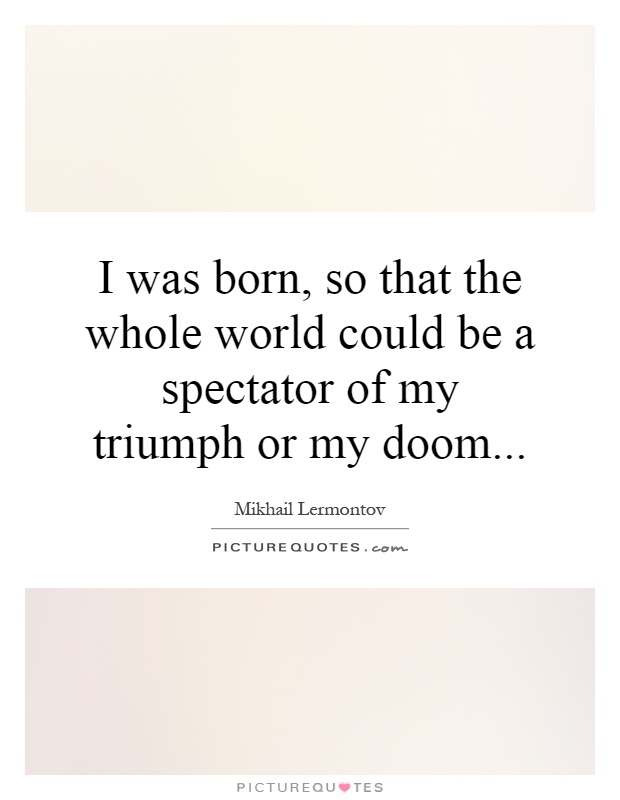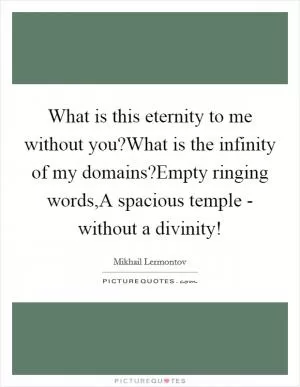I was born, so that the whole world could be a spectator of my triumph or my doom

I was born, so that the whole world could be a spectator of my triumph or my doom
Mikhail Lermontov, a prominent Russian poet and novelist of the 19th century, is often regarded as one of the greatest figures in Russian literature. His works are known for their deep psychological insight, emotional intensity, and exploration of the human condition. Lermontov's writing often reflects his own tumultuous life, marked by tragedy, exile, and a constant struggle for recognition and acceptance.The quote "I was born, so that the whole world could be a spectator of my triumph or my doom" encapsulates the essence of Lermontov's life and work. From a young age, Lermontov was acutely aware of his own exceptionalism and the weight of expectations placed upon him. Born into a noble family, he was raised with a sense of entitlement and privilege, but also a keen awareness of the pressures and responsibilities that came with his social status.
Lermontov's early years were marked by tragedy, as he lost his mother at a young age and was raised by his grandmother. These early experiences of loss and abandonment would shape his writing and his worldview, leading him to explore themes of alienation, despair, and the search for meaning in a chaotic and indifferent world.
As Lermontov grew older, he struggled to find his place in society and to reconcile his own desires and ambitions with the expectations of others. He was a complex and contradictory figure, at once fiercely independent and deeply insecure, driven by a desire for recognition and validation, but also plagued by self-doubt and a sense of inadequacy.
Lermontov's writing reflects this inner turmoil, as he grapples with questions of identity, purpose, and the nature of existence. His characters are often torn between conflicting impulses and desires, struggling to find meaning and fulfillment in a world that seems indifferent to their struggles.












 Friendship Quotes
Friendship Quotes Love Quotes
Love Quotes Life Quotes
Life Quotes Funny Quotes
Funny Quotes Motivational Quotes
Motivational Quotes Inspirational Quotes
Inspirational Quotes